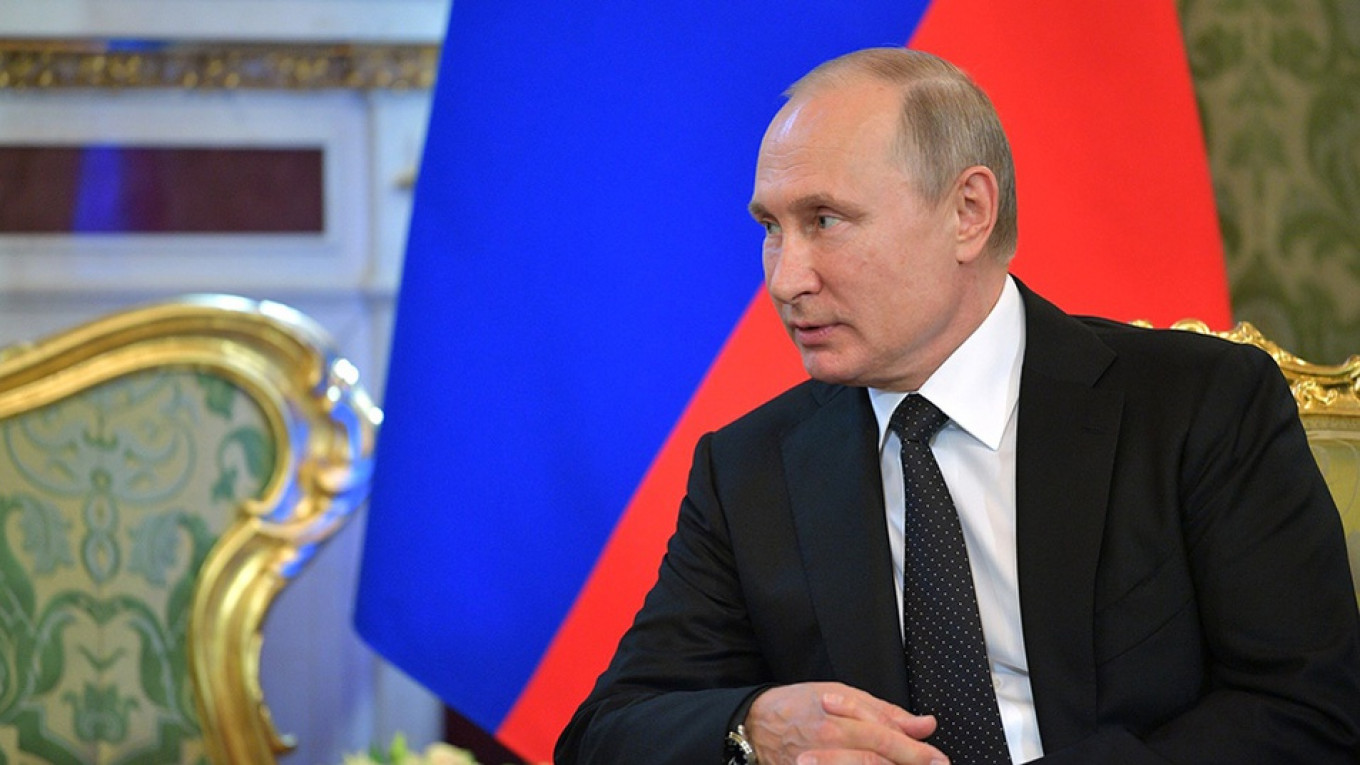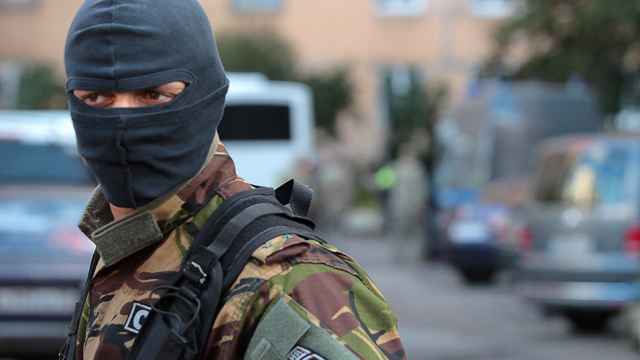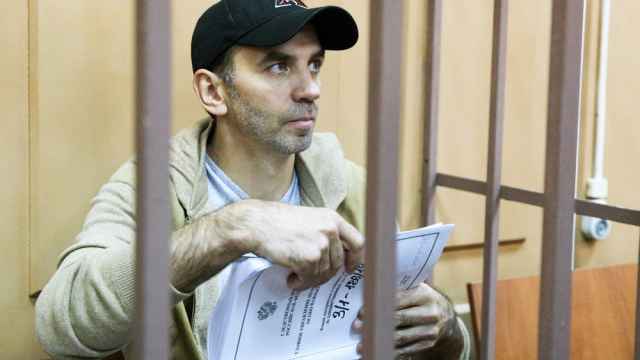Russian President Vladimir Putin has signed a two-year plan to combat corruption, but included in the bill is a loophole exempting some corrupt officials from liability.
Russia ranks among the world’s most corrupt countries in international ratings, with corruption-related crimes costing an estimated $2.5 billion in damages between 2014 and 2017. Anti-graft campaigns under Putin’s rule have lead to little progress, while protests against corruption shook the country last year.
The two-year national plan gives the Cabinet a 2019 deadline to devise laws to punish corrupt officials. Legislators are also charged with deciding which acts of corruption constitute a fireable offense and expanding the list of illicitly obtained goods subject to seizure.
Lawmakers are asked to submit draft bills by Nov. 1 tightening anti-corruption rules for federal and regional officials, as well as for state company employees.
One of the draft bills, according to the plan, could exempt corrupt officials from criminal liability under “force majeure," or exceptional, circumstances.
Critics of corruption in Russia say the government’s approach to fighting the scourge is flawed.
The government’s responsibility in both researching corruption across Russia while simultaneously tracking the success of anti-corruption efforts creates a conflict of interest argues Maxim Bouev, professor of applied finances at the European University in St. Petersburg.
“Even if we assume that politicians won’t intentionally abuse their position,” writes Bouev in a column for Vedomosti newspaper, “the existence of any anti-corruption loophole” offers an opportunity for manipulation.
A Message from The Moscow Times:
Dear readers,
We are facing unprecedented challenges. Russia's Prosecutor General's Office has designated The Moscow Times as an "undesirable" organization, criminalizing our work and putting our staff at risk of prosecution. This follows our earlier unjust labeling as a "foreign agent."
These actions are direct attempts to silence independent journalism in Russia. The authorities claim our work "discredits the decisions of the Russian leadership." We see things differently: we strive to provide accurate, unbiased reporting on Russia.
We, the journalists of The Moscow Times, refuse to be silenced. But to continue our work, we need your help.
Your support, no matter how small, makes a world of difference. If you can, please support us monthly starting from just $2. It's quick to set up, and every contribution makes a significant impact.
By supporting The Moscow Times, you're defending open, independent journalism in the face of repression. Thank you for standing with us.
Remind me later.






